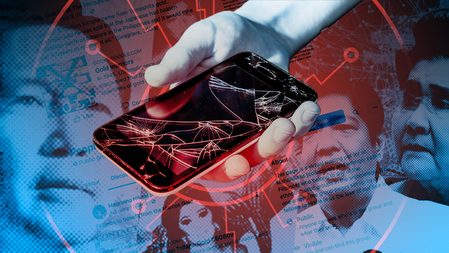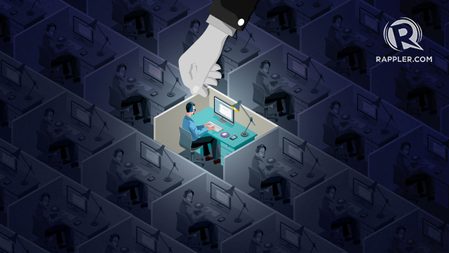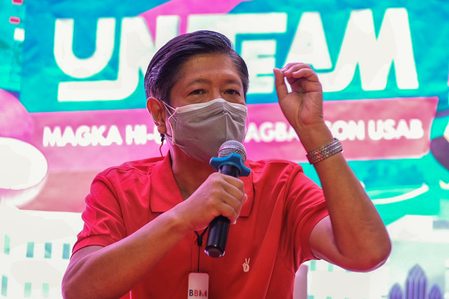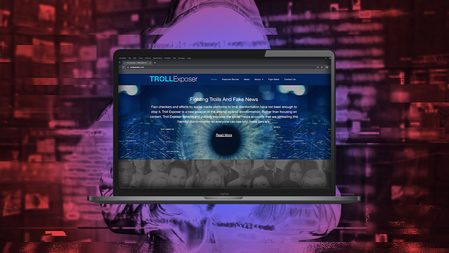SUMMARY
This is AI generated summarization, which may have errors. For context, always refer to the full article.
![[ANALYSIS] Reputation laundering and political microtargeting: New tools of the trade](https://www.rappler.com/tachyon/2022/05/tl-personality-laundering.png)
The Philippines woke up on the morning of May 10, 2022 to election results that confirm how reputation laundering and political microtargeting have become, and are likely to continue as, the most important tools politicians use to decisively shape public opinion. The disruption caused by these new tech tools usher in a new political reality – that the Philippines is now governed by elected leaders who cannot be moral leaders.
Reputation laundering is like money laundering – the process through which something dirty is made clean or acceptable. The principal difference is that while money laundering is a criminal offense, reputation laundering isn’t.
Central to reputation laundering is political microtargeting, “the practice of manipulating an individual’s thoughts and sentiments through disinformation tactics with the use of personal data,” according to Brittany Kaiser, a former staffer of Cambridge Analytica in a July 2020 interview with Rappler.
You undertake just enough research “to figure out what people believe about a certain family, individual, politician,” she explained, “and then you figure out what could convince them to feel otherwise.” Tests would be run repeatedly – for example, releasing different versions of attacks and disinformation for or against a political figure, like Bongbong Marcos or Leni Robredo – until changes are seen in people’s opinions and attitudes.
The trenches have changed
The trenches where election battles are fought in the Philippines have radically changed. These have made the deployment of reputation laundering and political microtargeting easier. Data and consumer research conducted by global advertising watchdogs in late 2021 and January 2022 show the following:
- The Philippines has 76.01 million internet users, or 68% of its total population of 111 million. Though low compared to northern Europe which has a 98% internet penetration rate, Filipinos spend an extraordinarily high amount of time online. On average, Filipino internet users spend 10:27 hours accessing the internet on various devices each day. The global average is 6:58 hours.
- More importantly, Filipinos spend 4:06 hours using social media, compared to the global average of 2:27 hours. As such, Statista cites how the Philippines has been called the “social media capital” of the world. In addition, Filipinos are known as early technology adopters and highly internet-savvy.
- The Philippines recorded 92.05 million social media users, with Facebook as the most used app with 83.85 million users. These figures exceed the number of internet users because it indicates duplicate or “non-human” accounts; it also includes migrant workers or temporary residents in the Philippines.
Rebranding the Marcos family image
The Marcos family appears to have learned about the new tools for shaping public opinion in 2015 when they approached Cambridge Analytica with a request to rebrand the family’s image. Cambridge Analytica gained infamy when on March to May 2018, it was found to have illegally collected the personal data of up to 87 million Facebook users in the US and the UK. The data was then used to build individual psychological profiles to inform on preferences, including what may be tried – from disinformation, urban legends, conspiracy theories, or manufactured scandals – to change their opinion on an issue or a politician. Many are convinced that the results of the June 2016 Brexit referendum and the November 2016 US elections are due to successful political microtargeting.
Subsequent research showed similar tools being deployed in the Philippines. A 2018 paper by Ong and Cabañes explained how laptop screens and smartphones were used to manipulate public debate, hijack mainstream media agenda, and influence political outcomes by the “architects of networked disinformation” – the “professionalised and hierarchized group of political operators who design disinformation campaigns, mobilize click armies, and execute innovative digital ‘black ops’ and ‘signal scrambling’ techniques for any interested political client.”
By October 2021, it was already evident the Marcos rebranding has been successful, according to research by the Philippine Media Monitoring Laboratory of UP Diliman. Marcos rose in influence and expanded reach across audiences in YouTube communities. Twitter became an “interaction network.” And on Facebook, which is essentially a “sharing network,” Marcos- and Duterte-related accounts expanded in reach and engaged more diverse communities.
What could be done?
Unfortunately, there are no quick fixes for successfully laundered reputations and manipulated public opinion. The words of Carole Cadwalladr, the lead journalist in the Cambridge Analytica exposé, were prescient. She emphasized that “this is not democracy,” because it came from “spreading lies in darkness paid for with illegal cash from God knows where.” Facebook, she said, had become an accessory to subversion. She doubts if it will now be actually possible to have free and fair elections ever again.
Fatima Gaw, co-lead of the UP Diliman research, affirms that interventions to address the problems are not working. Although Facebook, Twitter, and YouTube cracked down on accounts exhibiting “inauthentic behavior” and violating community standards, these actions are too slow to make any difference at all. It is like firefighters dousing flames after the house has already been destroyed.
Fact-checking may provide new materials for circulation but will only appeal to very small audiences. It will not have the same virality, for example, to quickly reverse urban legends that burnish the Marcos image.
Most importantly, states Gaw, the regulation of political microtargeting is useless because there is no way to police seemingly “organic” content on social media. Many are of the view, for example, that though online disinformation poses social and political risks, strong-arm regulation is equally risky because it can undermine human rights and freedom of expression.
After his election in 2016, Rodrigo Duterte radically increased his communication and propaganda expenditures. Thus, despite his failed war on drugs, capitulation to Chinese interests, incompetence during the pandemic, and the protection provided to cronies who made money from public contracts during the pandemic – he will step down from power with the highest acceptance and popularity ratings ever.
So where do we even begin to discuss what could be done? The first step is to remain assured that something can be done. There are now countries that have varying levels of success in countering disinformation and political microtargeting – such as what was seen in the 2017-2018 French, German, Dutch, and Austrian elections. Useful lessons could be drawn – for example on why and how French voters shared better quality information on Twitter or Facebook compared to Americans, or how domestic trolls and disinformation campaigns could be anticipated. Though there is no magic bullet, the bottom line is that the right questions should continue to be asked.
One approach that may be considered is to apply anti-money laundering measures to reputation laundering. To fight money laundering, the central measure enforced is to compel banks to conduct “due diligence” or know-your-customer (KYC) rules. Banks must know the real identity of the customers who open accounts with them. And there should be public registers of the “beneficial owners” of those accounts. Customers can have multiple bank accounts but can only have one single truthful identity and address known to the bank. Something similar should be developed for the various social media platforms.
Anti-money laundering rules also compel banks to submit Suspicious Activity Reports (SARs). As Cadwalladr mentioned, Facebook and the other platforms have become a crime scene, and the gods of Silicon Valley have the evidence. There should be a way that such evidence can be disclosed to relevant authorities, or in their absence, to media organizations with accountability.
Gaw points out a further step – that since “the boundaries between social spaces online are more porous than you think,” those same spaces can still be “infiltrated” or nudged in certain ways by political interlopers. Filter bubbles and echo chambers, she said, are not empirically proven. Hence, “affordances” – or what people notice or experience to change their views – can be brought into the same digital and media spaces that were used for reputation laundering.
In other words, the “crime scenes” on Facebook and other social media platforms, where reputation laundering and political microtargeting took place, should not be totally abandoned. A counterinsurgency to the subversion of democracy is still possible. – Rappler.com
Eric Gutierrez is a researcher based in Germany. He obtained his PhD in Development Studies (cum laude) from the International Institute of Social Studies – Erasmus University Rotterdam. The views expressed here are his alone.
Add a comment
How does this make you feel?




![[WATCH] In The Public Square with John Nery: Preloaded elections?](https://www.rappler.com/tachyon/2023/04/In-the-Public-Square-LS-SQ.jpg?resize=257%2C257&crop=414px%2C0px%2C1080px%2C1080px)
![[Newspoint] 19 million reasons](https://www.rappler.com/tachyon/2022/12/Newspoint-19-million-reasons-December-31-2022.jpg?resize=257%2C257&crop=181px%2C0px%2C900px%2C900px)

![[OPINION] The long revolution: Voices from the ground](https://www.rappler.com/tachyon/2022/06/Long-revolution-June-30-2022.jpg?resize=257%2C257&crop=239px%2C0px%2C720px%2C720px)
![[OPINION] I was called a ‘terrorist supporter’ while observing the Philippine elections](https://www.rappler.com/tachyon/2022/06/RT-poster-blurred.jpeg?resize=257%2C257&crop_strategy=attention)
![[DECODED] The Philippines and Brazil have a lot in common. Online toxicity is one.](https://www.rappler.com/tachyon/2024/07/misogyny-tech-carousel-revised-decoded-july-2024.jpg?resize=257%2C257&crop_strategy=attention)



![[Rappler’s Best] US does propaganda? Of course.](https://www.rappler.com/tachyon/2024/06/US-does-propaganda-Of-course-june-17-2024.jpg?resize=257%2C257&crop=236px%2C0px%2C720px%2C720px)
There are no comments yet. Add your comment to start the conversation.